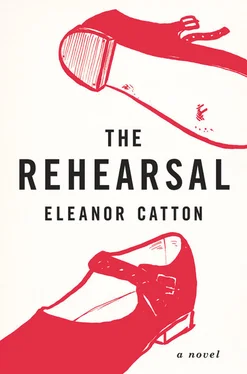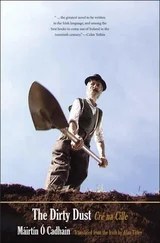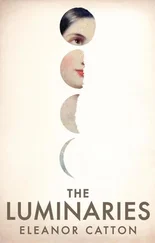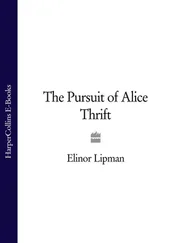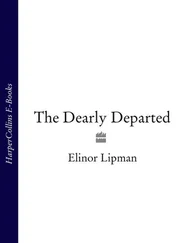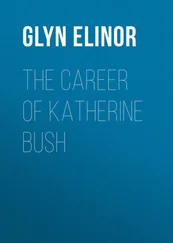The first few weeks of the year seemed to pass in a flurry. Initially the first-year batch appeared tentative and apologetic and bashful with each other, but in fact each student was carefully carving out a place within the context of the group: those who variously wanted to be thought of as comic or tragic or eccentric or profound began to mark out their territory, fashioning little shorthand epithets for themselves and staking claim to a particular personality type so that none of the others would have a chance. One of the girls might drape herself over her classmates as they walked from Movement down the hall to Voice and say, “God, I love you guys! I love you all!,” just to secure her place as someone who was indubitably sweet . With that place occupied, the others scurried to make known their social or musical or intellectual talents, each defining a little space for themselves that no one else would be able to touch. The other students all said, “Esther is so funny !” and “Michael is so bad !,” and just like that each won the double security of becoming both a person and a type.
Stanley wasn’t sure what marked him out as a person. He hung back at the beginning of the year and let the other boys claim the roles of the leader and the player and the clown, watching with a kind of uncertain awe as they worked to recruit admirers and an audience. He guessed he wanted to be thought of as sensitive and thoughtful, but he didn’t pursue the branding actively enough and soon those positions were taken. He found himself thoroughly eclipsed by several of the more ambitiously moody boys, boys who were studied in the way they tossed their hair off their forehead, thin boys with paperback copies of Nietzsche nosing out of their satchels, boys wearing self-conscious forlorn looks, permanently anxious and always slightly underfed. Whenever these boys began to speak, the class would peel back respectfully to listen.
Stanley found himself quietly shepherded into the middling drift of the unremarkable students in the class. Like the rest of them he nursed a small hope that one day he would come into his own and surpass them all, but the hope was half-buried, and in his lessons Stanley rarely bloomed.
“We’ll make something of you yet,” the Head of Improvisation said to Stanley one morning, reaching over and tapping his chest with her finger. “There’s something in there,” she said, “that one of these days is going to just ripen , overnight. You’ll see.”
She walked away and left Stanley with the hot echo of her touch on his sternum and a feeling of joyful arrival that stayed with him for the days and weeks following. He applied himself more vigorously to his technique, spurred on by this germ of confidence that swelled his chest to bursting. He began to believe in his own ripening, waiting for it with a pious kind of expectation like a cleric awaiting a response to prayer. He became more patient with his own failures, safe and confident in the knowledge that one day soon he would surely succeed.
“It’s a strange thing,” the Head of Improvisation said later in the staffroom, pausing to count stitches with the pearly edge of her fingernail and tug the woollen square out flat to check her progress. “It’s a strange thing, how we caress their egos like we do. I see how much it affects them, lights them up, and I feel so responsible, even guilty, like I am handing a loaded pistol to a child.”
“All actors are perverted by their profession,” the Head of Acting replied, shaking out his newspaper and folding it crisply along the existing seam. “We inflate their egos to make up for everything about them that gets trampled and broken. You’re not damaging them, Glenda. You’re just softening the blow.”
Most of Stanley’s friends from school had now dispersed, swallowed up by the local university and the polytechnic or packed off overseas to pursue better chances somewhere else. Stanley buried himself at the Institute. The first-years were required for long hours each day, and more and more often Stanley found reason to come into the buildings on the weekends, nosing around the script library or taking a book up to the viewing gallery above the dance hall, where he could watch the weekend school groups take classes in ballet and rope work and basic tissue. He found a flat with two other first-year actors, thin solemn figures who, like him, had let all the other bones of their lives fall away. He became consumed by the Institute so totally and wholeheartedly that he sometimes thought about the sour-faced boy from Wardrobe with the ancient gramophone in his arms. He had seen the boy several times on his way to and from the art department, always hauling cans of paint and bags of fabric scraps and half-finished puppets stuck with pins.
At home the boys talked nothing but acting, film and theater, and street performance and revolution, snug in the shell of their own irrelevance but all of them giddy as if they were standing together and alone on the edge of a new uncharted world. They talked long into the night and drafted plays on greasy scraps of newsprint and imagined what marvelous lies they might one day be paid to tell.
“When they write our biographies,” his housemates said, “when they write our biographies, all this will be in the opening chapter, the chapter before the big break, before we get famous, before everything starts happening. And this is the chapter that everyone will find really interesting and inspiring, because it will show that we are just people like everyone else, people who started from an ordinary beginning, people who were once poor and struggling and earning an ordinary wage. In that way, this chapter will be the most interesting chapter of the whole book.”
Stanley began to look at himself differently, cherishing the parts of himself that he might be able to use, delicately prodding himself for weaknesses, both fearful and hopeful that he might cause himself to bruise or break. His father, who had never before figured very prominently in his daily life, began to surface as a source of tragedy to be mined and exploited and spent. In class he talked about his father more and more. Gradually and unconsciously Stanley began to regard himself as a tragic figure—not a victim of the ordinary lash of adolescence, but a person more profoundly wronged, a kingly figure, an emotional hero. At night he sighed and pounded his pillow and sometimes cried.
“Always the arriviste ,” the Head of Acting said in the staff-room, with a kind of paternal amusement. “We get them too late. That’s the problem. We should have a school for sixteen-year-olds. They’d get their degree at nineteen. They’d have to drop out of high school to audition. It’d do them good.”
“They’re already formed by the time they enroll,” said the Head of Voice. “Psychically formed. Morally formed. Everything happens so early now.”
“And they love themselves so dearly,” the Head of Improvisation said. She tugged sharply at her wool and sent the ball rolling away under the table. “That’s the hardest thing to break.”
In the students’ cafeteria on the floor below, the first-years were clumped together in a similar debate. Stanley picked thoughtfully at his gray slip of pork as he listened.
“You have to admire people that come here,” one of them was saying, “people that choose to put themselves on display, people that choose to play with the very aspects of themselves that make them the most vulnerable. These people are the bravest people in the world.”
April
A fine mist of slanting rain was falling, darkening the slate and beading the swollen moss with a thin film like a silver dew. Stanley was sprawled on one of the vinyl couches that lined the corridors of the technical wing, lying on his back with his legs wrapped around the radiator pipe and reading, his thumb spread over the top edge of the spine to hold it open.
Читать дальше
